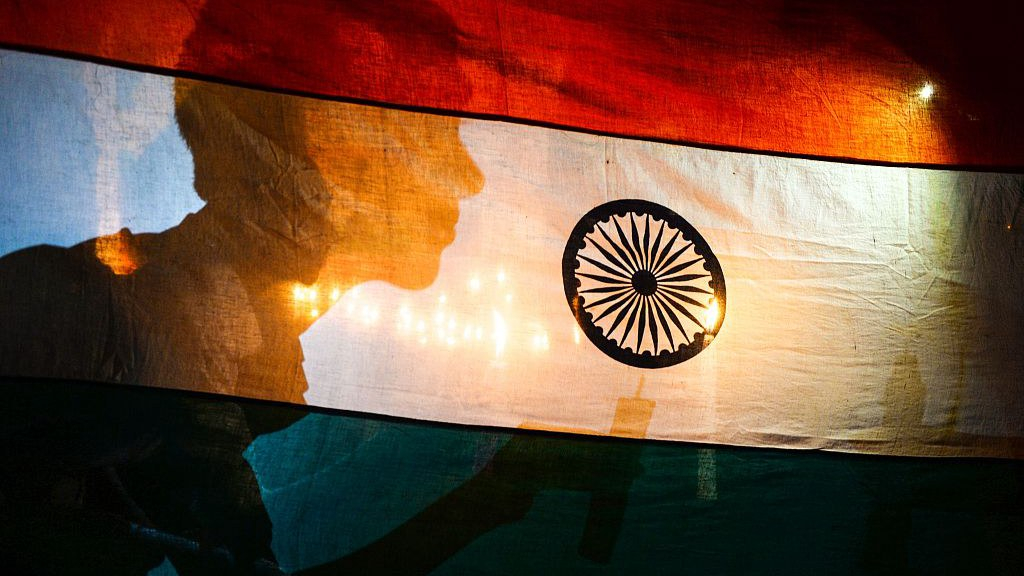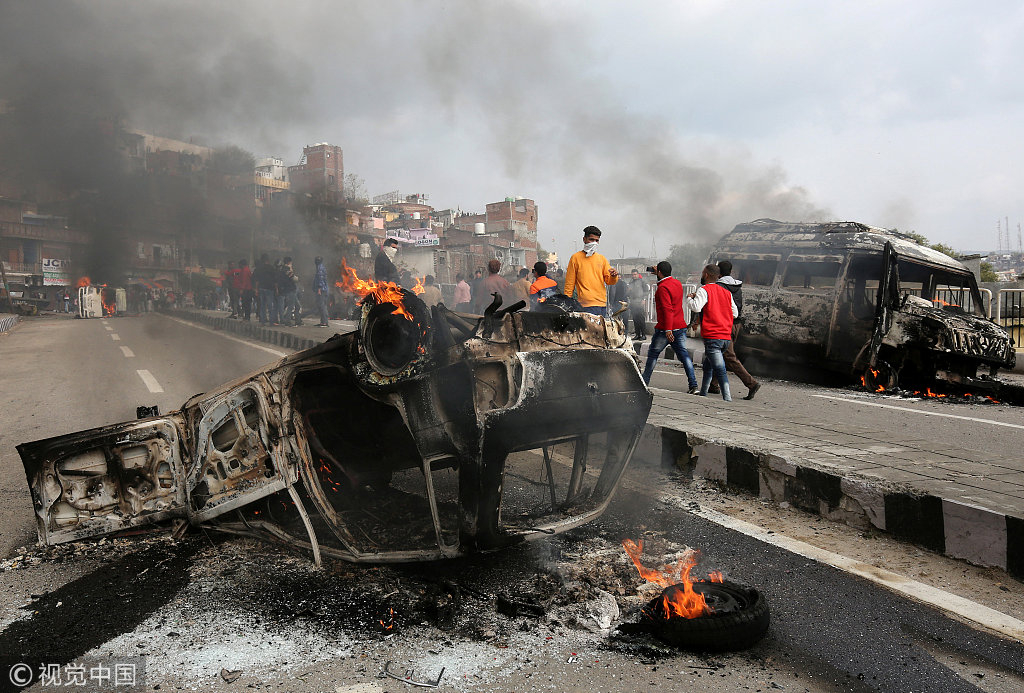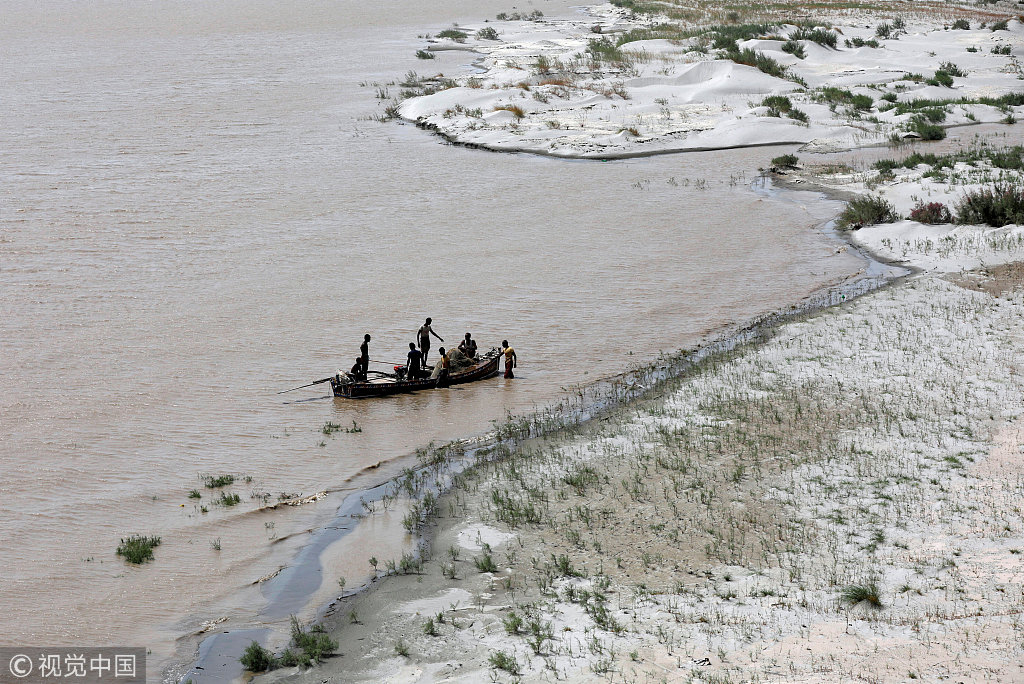
Opinion
15:41, 24-Feb-2019
Water should not be a 'diplomatic weapon'
Updated
16:07, 24-Feb-2019
Cheng Xizhong

Editor's note: Cheng Xizhong is a senior fellow at Chahar Institute and a former defense attache in South Asian countries. The article reflects the author's opinion, and not necessarily the views of CGTN.
Water resources are a major concern for South Asian countries, the lack of which has resulted in long-standing disputes in the region, especially among India, Pakistan and Bangladesh. Even though some agreements do exist on sharing water, contradictions cannot be eliminated for good.
Whenever diplomatic disputes arise, a regional power would make use of its geographical advantages of being in the upper reaches of water resources to create difficulties for other countries, further intensifying the conflicts.
Tensions between India and Pakistan have continuously escalated after a suicide attack in Indian-controlled Kashmir killed 41 Indian paramilitary personnel on February 14.
While blaming Pakistan for the deadly attack, India has taken a tough political and diplomatic stance against Pakistan, even removing Pakistan from its list of most-favored nations. India has also announced a tariff hike of a whopping 200-percent on all imports from Pakistan.

Vehicles are set ablaze by demonstrators during a protest against the suicide attack in India-controlled Kashmir, February 15, 2019. /VCG Photo
Vehicles are set ablaze by demonstrators during a protest against the suicide attack in India-controlled Kashmir, February 15, 2019. /VCG Photo
On February 21, Nitin Gadkari, India's minister of water resources, sent three tweets in a row, saying India would build dams to divert water from three rivers flowing into Pakistan from India and supply it to Indians in Jammu, Kashmir and Punjab.
In fact, the disputes between India and Pakistan over water sources have been going on since the partition of the two countries. It is not the first time that India has used water as a "diplomatic weapon."
Decades-long disputes over water
After the first Indian-Pakistani war ended in 1949, the line of demarcation between India and Pakistan in Kashmir was basically fixed according to the Line of Control (LoC). The Indus River, the mother river of the ancient Indian civilization, has a large downstream basin in Pakistan. But the main upstream rivers and their tributaries are in the Indian-controlled Kashmir.
As a result, the two countries had long debated the issue of water resources. It was not until 1960 that they signed the Indus Waters Treaty, which stipulated that India had access to the three tributaries (Ravi, Beas and Sutlej) in the east, and Pakistan had access to the three main rivers (Indus, Jhelum and Chenab) in the west.
However, as the upstream areas of the six rivers are controlled by India, if India cuts off the upstream flow, it will cause a water crisis in downstream Pakistan. India has been using this as an important means against Pakistan.
Since the Indus Waters Treaty was signed in 1960, India has built several dams on its three rivers, which, although in line with the Treaty, would reduce the flow of water on the lower reaches of the Indus River and cause a water shortage in Pakistan.

Fishermen prepare to leave for fishing along the Indus River in Hyderabad, Pakistan, September 3, 2018. /VCG Photo
Fishermen prepare to leave for fishing along the Indus River in Hyderabad, Pakistan, September 3, 2018. /VCG Photo
Since 1999, India has begun to build power stations on the upper reaches of the three rivers in the west, which were assigned to Pakistan according to the Indus Waters Treaty, incurring strong opposition from Pakistan.
Pakistan's goodwill and international good wishes
Power generation and agriculture in India and Pakistan are heavily dependent on water resources, so water is very important for both countries. These two countries face serious water shortages when droughts occur. It is said that about three-quarters of the Indian households do not have access to the supply of drinking water, and 70 percent of Indian water is polluted.
Many people in India and Pakistan are still impoverished. The two countries must urgently develop the economy and rid of poverty. In view of the fundamental interests of more than 1.5 billion people in the two countries, it is incumbent upon the governments to maintain the stability of their relations so that they can concentrate their efforts on economic development and the improvement of people's well-being. Harmonious cooperation will make the two countries prosperous, while stirring up troubles will only hurt both.
Pakistani Prime Minister Imran Khan recently expressed his willingness to engage in dialogue with India on counter-terrorism and to investigate the attack in Indian-controlled Kashmir on February 14. He said that the relevant persons and organizations will be punished if they are found involved in the terrorist attack, according to an investigation by the Indian authorities.
The international community hopes that India and Pakistan can calm down, exercise restraint and start the process of dialogue and cooperation. Therefore, India should respond positively to the good wishes of the international community and Pakistan's goodwill with sincerity and responsibility. After all, the issue of water resources involves the life of every person in the region, and diplomatic disputes between countries should not come at the expense of the precious lives of people.
(If you want to contribute and have specific expertise, please contact us at opinions@cgtn.com.)

SITEMAP
Copyright © 2018 CGTN. Beijing ICP prepared NO.16065310-3
Copyright © 2018 CGTN. Beijing ICP prepared NO.16065310-3